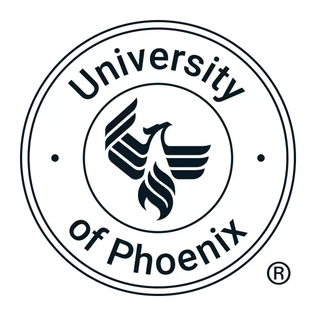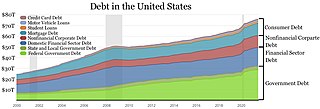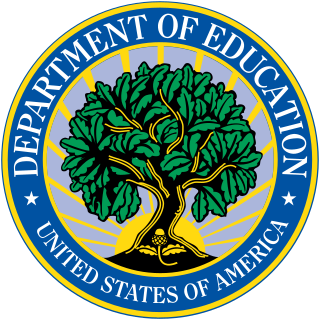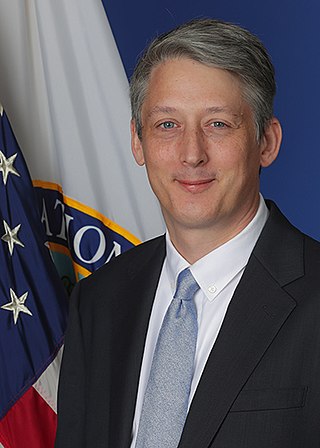
University of Phoenix (UoPX) is a private for-profit university headquartered in Phoenix, Arizona. Founded in 1976, the university confers certificates and degrees at the certificate, associate, bachelor's, master's, and doctoral degree levels. It is institutionally accredited by the Higher Learning Commission and has an open enrollment admissions policy for many undergraduate programs. The school is owned by Apollo Global Management and Vistria Group.
The University of Arizona Global Campus is a public online university affiliated with the University of Arizona. The university announced a deal to acquire Ashford University in 2020 and completed the deal in 2023.
The Free Application for Federal Student Aid (FAFSA) is a form completed by current and prospective college students in the United States to determine their eligibility for student financial aid.
Student financial aid in the United States is funding that is available exclusively to students attending a post-secondary educational institution in the United States. This funding is used to assist in covering the many costs incurred in the pursuit of post-secondary education. Financial aid is available from federal and state governments, educational institutions, and private organizations. It can be awarded in the form of grants, loans, work-study, and scholarships. In order to apply for federal financial aid, students must first complete the Free Application for Federal Student Aid (FAFSA).
Walden University is a private for-profit online university headquartered in Minneapolis, Minnesota. It offers bachelor's, master's, doctoral, and specialist degrees. The university is owned by Adtalem Global Education, which purchased the university in August 2021. The institution is accredited by the Higher Learning Commission.
Perdoceo Education Corporation (PRDO) is a public company that owns four for-profit universities in the United States: American Intercontinental University, Colorado Technical University, California Southern University, and Trident University International. The company was previously known as Career Education Corporation.
A Pell Grant is a subsidy the U.S. federal government provides for students who need it to pay for college. Federal Pell Grants are limited to students with exceptional financial need, who have not earned their first bachelor's degree, or who are enrolled in certain post-baccalaureate programs, through participating institutions. Originally known as a Basic Educational Opportunity Grant, it was renamed in 1980 in honor of Democratic U.S. Senator Claiborne Pell of Rhode Island. A Pell Grant is generally considered the foundation of a student's financial aid package, to which other forms of aid are added. The Federal Pell Grant program is administered by the United States Department of Education, which determines the student's financial need and through it, the student's Pell eligibility. The U.S. Department of Education uses a standard formula to evaluate financial information reported on the Free Application for Federal Student Aid (FAFSA) for determining the student's Expected Family Contribution (EFC).

In the United States, higher education is an optional stage of formal learning following secondary education. It is also referred to as post-secondary education, third-stage, third-level, or tertiary education. It covers stages 5 to 8 on the International ISCED 2011 scale. It is delivered at 3,931 Title IV degree-granting institutions, known as colleges or universities. These may be public or private universities, research universities, liberal arts colleges, community colleges, or for-profit colleges. U.S. higher education is loosely regulated by the government and by several third-party organizations.

The Higher Education Act of 1965 (HEA) was legislation signed into United States law on November 8, 1965, as part of President Lyndon Johnson's Great Society domestic agenda. Johnson chose Texas State University, his alma mater, as the signing site. The law was intended "to strengthen the educational resources of our colleges and universities and to provide financial assistance for students in postsecondary and higher education". It increased federal money given to universities, created scholarships, gave low-interest loans for students, and established a National Teachers Corps. The "financial assistance for students" is covered in Title IV of the HEA.
The Federal Supplemental Educational Opportunity Grant, more commonly known by its acronym SEOG, is a federal assistance grant reserved for college students with the greatest need for financial aid to attend school. To be eligible for this grant, applicants must meet all of the following criteria:
- To be a United States citizen or eligible non-citizen,
- To not have a bachelor's degree,
- To not be in default of any federal student loan,
- To not have a Federal Pell Grant overpayment,
- To file their FAFSA.

In the United States, student loans are a form of financial aid intended to help students access higher education. In 2018, 70 percent of higher education graduates had used loans to cover some or all of their expenses. With notable exceptions, student loans must be repaid, in contrast to other forms of financial aid such as scholarships, which are not repaid, and grants, which rarely have to be repaid. Student loans may be discharged through bankruptcy, but this is difficult. Research shows that access to student loans increases credit-constrained students' degree completion, later-life earnings, and student loan repayment while having no impact on overall debt.

The Under Secretary of Education role was established as the second-highest-ranking position in the United States Department of Education when the agency was established in 1979. With the addition of a Deputy Secretary position in 1991, the Under Secretary became the third highest. The Under Secretary of Education is appointed by the President of the United States, with the approval of the United States Senate, to serve at the President's pleasure.

Zovio, formerly Bridgepoint Education, Inc. (BPI), was a publicly held, American for-profit education services company. It is no longer in operation. It was the online program manager for one online university, the University of Arizona Global Campus, until the contract termination was announced August 1, 2022. In April 2019, the company changed its name to Zovio, moving its headquarters to Chandler, Arizona. In 2020, the company sold Ashford University to the University of Arizona. Zovio also owned Waypoint Outcomes and Fullstack Academy and traded on NASDAQ under the ticket symbol ZVO.
Steven Eisman is an American businessman and investor known for having shorted collateralized debt obligations (CDOs), thereby profiting from the collapse of the US housing bubble in 2007–2008.
The Institute for College Access and Success (TICAS) is a non-profit organization founded by Lauren Asher and Robert Shireman in 2005 that works to make higher education more available and affordable for people in the United States. Headquartered in Oakland, California, with a satellite office in Washington D.C., it conducts research, analysis, and provides advocacy. Its work has been cited by USA Today, Forbes, U.S. News & World Report, and The Atlantic.
For-profit higher education in the United States refers to the commercialization and privatization of American higher education institutions. For-profit colleges have been the most recognizable for-profit institutions, and more recently with online program managers, but commercialization has been part of US higher education for centuries. Privatization of public institutions has been increasing since at least the 1980s.
Purdue University Global, Inc. is a public online university that is a separately accredited part of the Purdue University system. Its primary focus is educating working adults.
California Competes is an American nonprofit policy organization seeking to increase access to college and improve college graduation rates. Created in 2011 by civic and business leaders in California, the group has labeled the state's higher education system dysfunctional and called for better coordination and planning for the future needs of the state's economy. The group's work has included advocating for a more robust statewide education data system and for greater financial supports for parents in college. Prior research had revealed that lower-income areas of the state were being shortchanged in the support they were receiving for community colleges.

James Richard Kvaal is an American attorney and education policy advisor who is the current under secretary of education in the Biden administration. Kvaal previously served in the United States Department of Education and White House Office during the Obama administration.
For-profit colleges, also known as proprietary colleges, are post-secondary schools that rely on investors, and survive by making a profit. They include for-profit vocational and technical schools, career colleges, and predominantly online universities. For-profit colleges have frequently offered career-oriented curricula including culinary arts, business and technology, and health care. These institutions have a long history in the US, and grew rapidly from 1972 to 2009. The growth of for-profit education has been fueled by government funding as well as corporate investment, including private equity.







